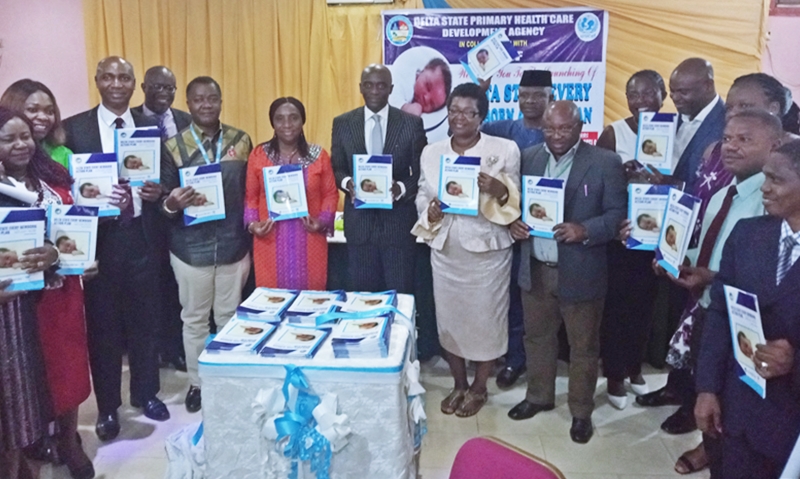Health
Neonatal Mortality: Delta Launches Action Plan To End Preventable Newborn Deaths
By Chris-Osaji Nneka
In a bid to reduce neonatal deaths to the least possible by eliminating preventable deaths in the first 28 days of life, the Delta State Primary Health Care Development Agency (DSPHCDA) in partnership with the United Nations Children’s Fund (UNICEF) has launched the Delta State Every Newborn Action Plan (DSENAP).
The launch of the DSENAP, a derivative of the Nigeria Every Newborn Action Plan (NiENAP) which took place on Thursday, November 14, 2019 at Orchid Hotels Asaba, was performed by the Secretary to the State Government, Mr. Chiedu Ebie who dedicated the plan in memory of all babies who died within their 28 days, with a pledge that Delta State shall continue to provide quality care to her new born citizens.
Welcoming participants to the launch, Dr Winful-Orieke Jude, Executive Director, Delta State Primary Health Care Development Agency commended the Federal and State Government, UNICEF and other partners for their input through the provision of funding and data that facilitated the development of the DSENAP, adding that the action plan was in line with Governor Okowa’s Stronger Delta Agenda.
Speaking at the event, the Minister of Health, Dr. Osagie Ehanire commended the Delta State Government for being the second state to implement the Newborn Action Plan which was launched at the National level in 2017.
Represented by Dr. Mrs. Bose Adeniran, the Health Minister charged that the plan should survive in the state, saying, “we want the goals and target of this document to be achieved”.
The Executive Director, National Primary Health Care Development Agency (NPHCDA), Dr Faisal Shuaib also congratulated Delta State for the launch, stressing that NiENAP presents a set of intervention packages which are; promotion of facility based deliveries addressing at scale addressing equity issues, strengthening of community based interventions, strengthening of facility readiness for providing quality care for the newborn, and provision of quality care for the new born with focus on labour, birth, and immediate care after birth during the first week of life.
Representative of UNICEF at the launch, Dr. Eghe Abe, from the Rivers Field Office, Port-Harcourt, assured that UNICEF will continue to support Delta State Government with technical and financial assistance towards strengthened coordination of the health sector, data generation for evidence and development, and use of framework for accelerating actions for impact to achieve results for women and children especially the newborns.
The presentation of the Action Plan was done by Dr. Peace Ighosoewe , a consultant at the Sickle Cell Clinic, Asaba Specialist Hospital. In the presentation, it was recommended that there should be increase in the number of consultant paediatricians in the state, adequate training and re-training for all health workers especially neonatal workers and provision of basic neonatal equipment in all Primary Healthcare Centres and Hospitals across Delta State.
According to UNICEF, Nigeria is the 11th most dangerous place in the world for a newborn to be born. The Nigeria States Data Profile (NSDP) reported an annual birth of 163,000 each year in Delta State with an annual neonatal death of 5,000 and neonatal mortality rate of 32 per 1000 live births. Delta State has a high still-birth rate (11.6 per 1000 total births in 2017).
Many of still-births occur in labour and child birth and are mostly preventable through quality intra-partum care, which is why Delta State has joined the global body in executing the Every Newborn Action Plan to reduce the neonatal mortality rate.
The vision of the Delta State Every Newborn Action Plan is, “A Delta State with zero tolerance to preventable newborn deaths, where all pregnancies are wanted, all births celebrated and women babies and children thrive and reach their full potential”.
The goal of DSENAP is to reduce neonatal mortality from 32 per 1000 live births in 2019 to 15 per 1000 live births in 2030. It also includes a reduction in the still birth rate from 11.6 per 1000 total births in 2019 to 5 per 1000 total births in 2030.






























